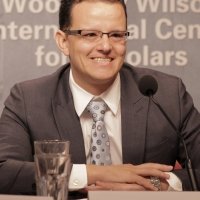Latin American Program Global Fellow Juan Carlos Garzón is interviewed in this article about the increasing difficulty of identifying "transit countries" through which drugs pass on their way to market; instead, these countries are now locations where drugs are processed as well as shipped.
[...]
Para Garzón Vergara, "la evidencia indica que las últimas etapas del proceso de elaboración de drogas está jugando un lugar" en países como Argentina, y explica que la discusión está más centrada "sobre las magnitudes", pero no hay dudas de que el crecimiento del consumo y el desmantelamiento de cocinas confirman que el narcotráfico está avanzando en Argentina.
[...]
Click here to read the entire article in Spanish.





